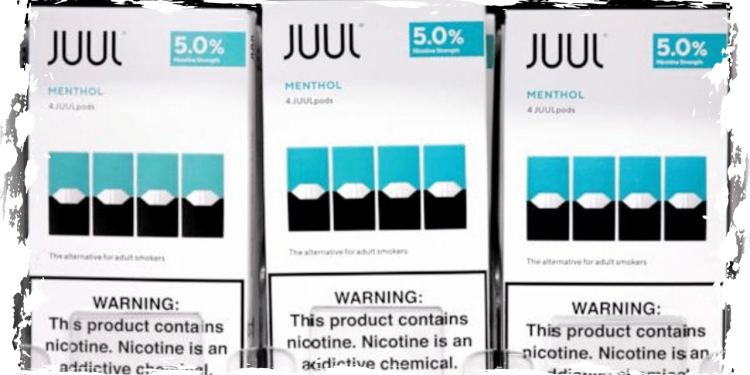On Thursday, the U.S. Food and Drug Administration lifted Juul Labs’ marketing ban, paving the way for potential product approval.
The reversal comes nearly two years after the federal health department ordered the company’s e-cigarettes and vaping products removed from the market.
The FDA initially denied Juul’s application to sell its vaping device and tobacco- and menthol-flavored pods in June 2022, after a nearly two-year review of the manufacturer’s application, stating that the applications “lacked sufficient evidence regarding the toxicological profile of the products to demonstrate that the marketing of the products met the public health standard required by law.”
The company has long asserted that using its product can help people stop smoking cigarettes.
The FDA then postponed the ban just weeks later, in July 2022, to conduct additional scientific evaluation.
Since then, the FDA has announced that it has “conducted an additional substantive review of the applications in a number of disciplines, including toxicology, engineering, social science, and clinical pharmacology.”
The FDA stated that the reversal was based on a “review of information provided by the applicant,” as well as new case law resulting from court rulings involving marketing denial orders, or MDOs, for e-cigarette products.
The Food and Drug Administration stated in a statement that the revocation of the MDOs does not signify authorization or denial, nor does it suggest the likelihood of authorization or denial for the applications. “Rescission of the MDOs returns the applications to pending status, under substantive review by the FDA.”
Juul Labs stated on Thursday that they “appreciate the FDA’s decision and now look forward to re-engaging with the agency on a science- and evidence-based process to pursue a marketing authorization for JUUL products.”
“We remain confident in the quality and substance of our applications and believe that a full review of the science and evidence will demonstrate that our products meet the statutory standard of being appropriate for the protection of public health,” the press release added.
In 2009, Congress authorized the FDA to regulate tobacco product manufacturing, distribution, and marketing.
E-cigarette makers, including Juul, were required to submit their goods to the FDA for evaluation by September 2020, although they may continue to sell products while the FDA assessment is underway.
Juul pods have nicotine levels of 5% or 3%, according to the firm.
The American Lung Association stated Thursday that it was “deeply troubled” by the FDA’s move and urged the agency to ban all Juul products, citing its participation in the “youth e-cigarette epidemic from 2017-2019.”
“These products and their manufacturer clearly do not meet the standard for protecting public health,” Erika Sward, the association’s associate vice president of national advocacy, stated.
Juul became one of the most popular e-cigarette brands after entering the market in the mid-2010s, thanks in large part to its diverse flavor offerings. Politicians and anti-tobacco groups have accused the corporation of marketing vaping to youngsters and teenagers in the United States by employing these flavors and a slick design mimicking a USB flash drive.
According to the US Centers for Disease Control and Prevention, more than 2 million American middle and high school children will use e-cigarettes in 2023, with nearly 9 out of 10 using flavored e-cigarettes. E-cigarette use among high school students decreased from 14.1% to 10% between 2022 and 2023, but they remained the most popular tobacco product among youngsters, according to the CDC.
According to the 2023 National Youth Tobacco Poll, Juul was the fourth most popular e-cigarette brand among adolescents, down from first place in the 2020 poll.
Juul states that its products cater to adult smokers aged 21 and above. In response to the 2023 National Youth Tobacco Survey, the firm stated that it was “pleased to see continued declines in underage use of all vapor products and JUUL products in particular.”
“These data demonstrate that appropriate restrictions on access and marketing of vapor products work and can lead to significant reductions in underage use in a regulated marketplace,” the business stated. “The statistics highlight the need for increased enforcement against unlawful throwaway items, which currently dominate teenage use. That enforcement effort, when combined with market authorizations for products that fulfill the statutory requirement based on science and facts, has the potential to unlock a historic opportunity to reduce the lethal impact of combustible cigarettes while also driving down underage usage.”










